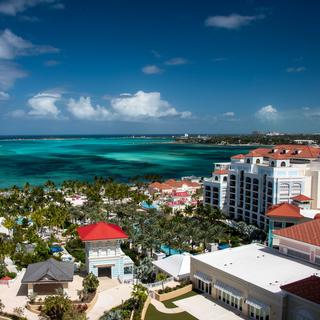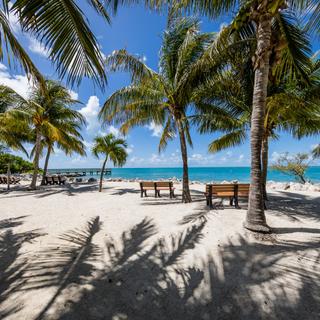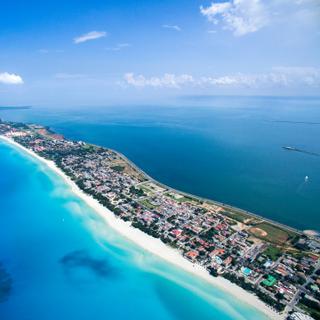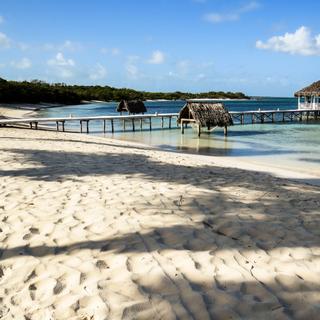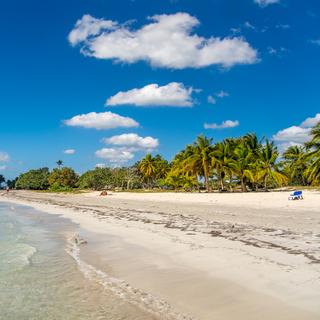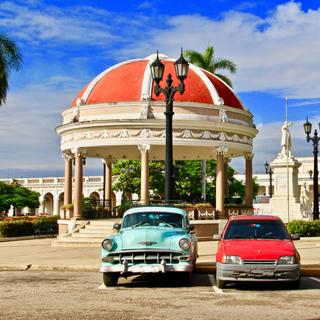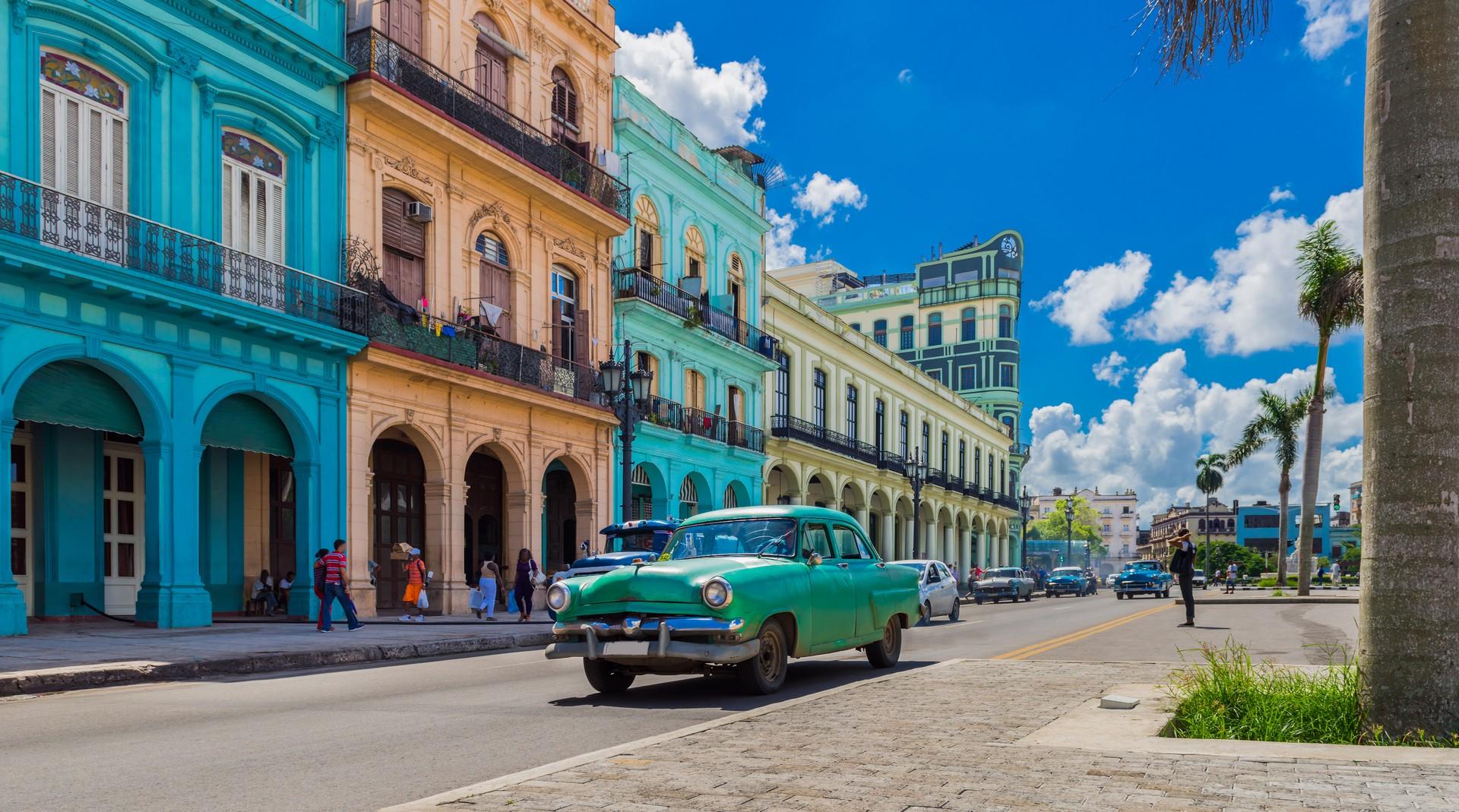
Havana weather and climate

Havana weather and climate
Day
33 °C
Night
25 °C
Sea
29 °C
Precipitation
113 mm
in month
Rainy days
10 days
in month
Daylight
13 hours
average
Sunshine
9 hours
average
Humidity
80 %
Weather charts for Havana

Find more destinations like this
Destinations with similar weather to Havana
Other destinations in West Cuba
Closest cities for Havana
Last week's weather in Havana
Average daily temperature during the week of 23 June 2025 - 29 June 2025 was 33 °C (91 °F), average minimal (night) temperature was 24 °C (75 °F). Both the daily and night temperatures in Havana are roughly same as the long-term average, which is around 32 °C (90 °F) and 24 °C (75 °F) respectively. On average, the temperatures during various times of day (in local time) were recorded as: 7am 24 °C (75 °F), 10am 29 °C (84 °F), 1pm 32 °C (90 °F), 4pm 31 °C (88 °F), 7pm 31 °C (88 °F), 10pm 27 °C (81 °F).
There were 5 days without rain and 2 days with light rain during this week. During the whole week, total of 4 mm (0.16 in) of precipitation was observed, which is below the long term average for Havana, which is 37 mm (1.46 in). From dawn to dusk, there was an average of 52 % cloud coverage during the day.
An average wind speed of 3.1 m/s was recorded. East was the dominant wind direction(s). The atmosferic pressure ranged from 1015 hpa to 1020 hpa. The air in Havana had an average humidity of 79 %.
During the daytime (from dawn to dusk), there were in average: 4 hours clear skies, 4 hours partially overcast skies, 6 hours overcast skies and 0.5 hours rainy weather. On average, the time of sunrise was 06:45, and the time of sunset was 20:18.
Weather overview for Havana
Weather overview
The city of Havana in Cuba is renowned for its tropical climate, offering a range of temperatures throughout the year. During daylight hours, one can expect temperatures that vary from a cooler 27 °C (80 °F) in January to a peak of 33 °C (92 °F) in August. At night, the warmest temperatures typically occur in August reaching 25 °C (76 °F), while the coldest nights are in January with temperatures dropping to 18 °C (65 °F). Sea temperatures fluctuate between 26 °C (78 °F) in February and a balmy 29 °C (85 °F) in August. Travelers should also consider the number of rainy days, with April being the driest month averaging around 5 days of precipitation, and September witnessing the heaviest rainfall over an average of 13 days.
January weather
In January, there is a noticeable minimum in daytime temperature, marked at 27 °C (80 °F) in Havana. Correspondingly, the sea temperature also drops slightly to 26 °C (79 °F). Rainy days are decreasing, with the average being 5 days. The city begins to experience the onset of the dry season. As for nighttime temperatures, they're at their lowest.
February weather
February in Havana experiences the coldest sea temperatures for the year at 26 °C (78 °F), while the daytime temperatures begin an upward trend, currently at 28 °C (82 °F). The frequency of rainy days begins to increase. The end of the dry season nears as night temperatures start to warm up, alongside the rising number of cloudless sun hours, marked at 7 hours.
March weather
As Havana progresses into March, there is a continuous climb in day temperatures, now at 28 °C (83 °F), with night temperatures also rising to 20 °C (67 °F). The minimal rainfall is evident through 52 mm (2.04 in), and there is a decline in the number of rainy days, now at 5 days. An increase in sun hours, clocking in at 8 hours, accompanies the peak wind speeds recorded at 4 m/s.
April weather
Moving on to April, the warming trend continues with sea temperatures rising to 26 °C (79 °F), and daytime temperatures now reaching 30 °C (85 °F). The number of rainy days hits a low point at 5 days, while at the same time, rainfall starts to increase, now at 61 mm (2.39 in). The quantity of cloudless sun hours persists in its rise, now at 9 hours, and humidity records a new low, with a figure of 73 %.
May weather
Come May, the sea temperature begins its ascent to 27 °C (81 °F), which is mirrored by the increase in daytime temperatures, now at 31 °C (87 °F). Rainy days start to climb, reaching 8 days, and there's a noticeable rise in precipitation volume at 103 mm (4.07 in). Night temperatures warm similarly to previous months, settling at 22 °C (72 °F). The descent in cloudless sun hours begins, now marked at 9 hours.
June weather
June in Havana is characterized by further increases in daytime temperatures, now at 32 °C (90 °F), while the sea temperature also rises, indicated by 28 °C (83 °F). The frequency of rainy days experiences growth, now standing at 12 days, and the maximum rainfall for the year is observed at 178 mm (7.02 in). Night temperatures continue their ascent, now at 24 °C (75 °F). The sun hours begin to dwindle, marked at 8 hours.
July weather
July sees the day temperatures in Havana still on the rise, marked at 33 °C (91 °F), and the sea temperatures also increasing, currently at 29 °C (84 °F). A decrease in the number of rainy days becomes apparent, settling at 10 days, and the rainfall volume also begins to subside, now at 113 mm (4.45 in). The sun hours start to increase once more. Nighttime temperatures steadily elevate, coming in at 25 °C (76 °F).
August weather
August experiences the highest daytime temperatures of the year in Havana, in addition to peak sea temperatures at 29 °C (85 °F). The trend for rainy days begins rising again. The highest nighttime temperatures are noted during this month, averaging 25 °C (76 °F), and wind speeds reach their minimum, indicated by 2 m/s.
September weather
September marks the beginning of falling daytime temperatures in Havana, now averaging 32 °C (90 °F). Rainy days reach their peak, averaging 13 days, and rainfall starts to increase again, totaling 163 mm (6.40 in). The highest levels of humidity for the year are reported this month. The most sun hours are also noted in September.
October weather
The trend of decreasing daytime temperatures continues into October in Havana, registering 31 °C (88 °F), while the sea temperature begins its decline, placing it at 28 °C (83 °F). The number of rainy days begins to decrease, now at 11 days, and the rainfall volume also starts its downward trend, currently at 132 mm (5.21 in). The onset of cooler night temperatures can be observed.
November weather
As Havana moves into November, daytime temperatures keep their downward trajectory, now at 29 °C (84 °F), and the sea temperature also continues to fall. The volume of rain lessens, with a figure of 82 mm (3.22 in), and the number of rainy days also dwindles, marked at 7 days. A continued drop in night temperatures is evident, currently at 21 °C (70 °F). The sun hours persist in their decrease.
December weather
December heralds the continuation of falling sea temperatures in Havana, now at 27 °C (80 °F), and day temperatures further decrease to 27 °C (81 °F). The trend for rainy days also reduces, now averaging 6 days. The rainfall volume takes a similar dip, settling at 60 mm (2.35 in). Cold night temperatures persist in their seasonal decline. The least amount of sun hours is typical for this month.
FAQs
What's the atmosphere likely to be like in January in terms of rainfall?
January in Havana is characterized by a limited amount of rainfall, averaging about 5 days of rain, indicating the gradual commencement of the drier months.
How extensive is the increase in daylight hours during February in Havana?
With the month of February, Havana enjoys a slight increase in daylight hours with an average of 7 hours of clear sunshine.
How does the wind speed in March compare to other months in Havana?
March sees the highest wind speeds of the year in Havana, registering at 4 m/s, adding a refreshing breeze to the warmer climate.
How does the humidity in April impact the overall feel in Havana?
April's humidity dips to the lowest point of the year at 73 %, making it feel less muggy compared to other months in Havana.
What's the change in precipitation like in May in Havana?
In May, Havana starts to see a significant rise in precipitation with rainfall measuring at 103 mm (4.07 in), signaling the impending wet season.
How does the temperature at night evolve in June in Havana?
As June settles in, Havana's night temperatures reach a warm 24 °C (75 °F), contributing to the tropical ambiance of the city's evenings.
What trends are observable with the rain in July in Havana?
July in Havana brings a downturn in the number of rainy days to 10 days, and there's also a reduction in the amount of rain measured at 113 mm (4.45 in).
During August in Havana, are there more or fewer rainy days than in previous months?
In contrast to July, August in Havana sees a resurgence in the number of rainy days, expecting more precipitation events.
What is the situation with humidity in Havana during September?
September in Havana is marked by peak humidity levels, often making the warmer temperatures feel even more intense.
What can be said about Havana's climate as it transitions into October?
October in Havana brings a gradual transition towards cooler conditions, with less rain and a noticeable dip in both sea and air temperatures.
Regarding the sun hours in November, how does Havana fare?
In Havana, November sees a further decline in the hours of sunshine, preparing for the shorter days typical of the upcoming winter season.
How does December compare to the rest of the year in terms of daylight in Havana?
During December, the sun hours in Havana reach their yearly nadir, signifying brief daylight periods than those experienced throughout the rest of the year.

